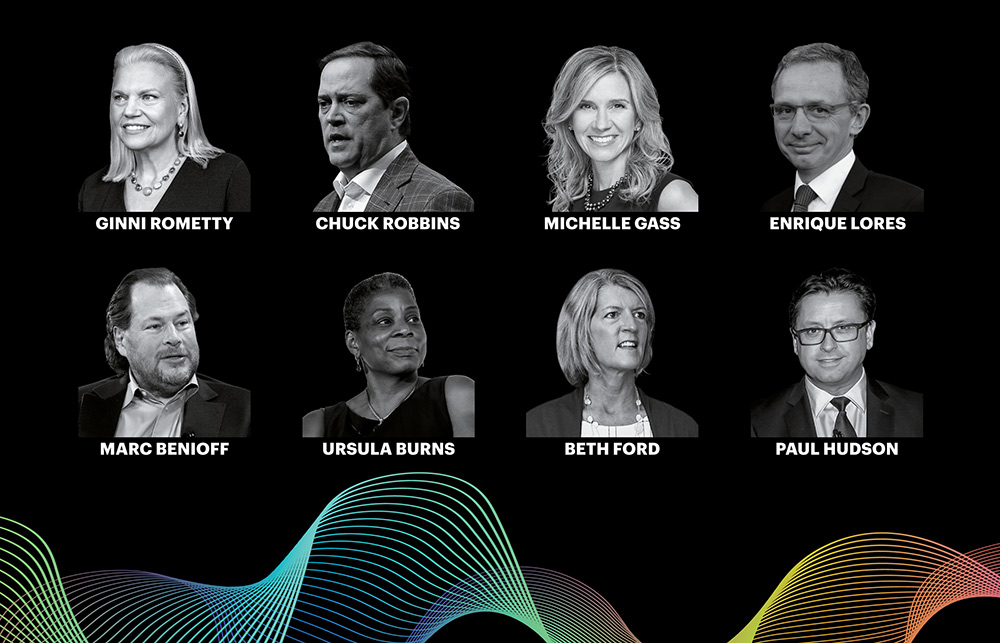
2020年是不尋常的一年,這一年,全球爆發新冠疫情,美國國內抗議警察對有色人種采取暴力,首席執行官們也開始直抒己見。
許多企業領導人以前因為擔心惹惱客戶和投資者而回避談論敏感話題,現在,他們卻掀起了一些波瀾。他們掀起的波瀾并不是海嘯,他們選擇介入的話題范圍也很有限,但與往年相比,他們的直言不諱還是很明顯的。
德勤美國公司(Deloitte U.S.)的首席執行官喬·烏庫佐格魯在《財富》雜志的一期《未來領導力》播客討論中說:“我們的員工想知道,他們服務的組織是一個愿意明顯捍衛維我們的價值觀的組織,一個支持與我們生活工作息息相關的社會變革的組織。”
在明尼阿波利斯警察殺害喬治·弗洛伊德之后,許多首席執行官首次與員工就種族問題進行了對話,同時承諾將采取更多措施,使員工隊伍更加多樣化。有些首席執行官贊同改變工作氛圍并且保護工作環境。
企業領導人為解決社會問題所做的努力最近被冠以“利益相關者資本主義”的標簽。是的,企業仍然希望使股東滿意,但也不能忽視工人、社會各界和供應商。
問題是,企業是否只是坐而論道。畢竟,口頭說說不需要付出任何代價,而實際行動則會產生實實在在的成本。
首席執行官們將如何處理使員工面臨失業的工作自動化問題?如何對抗總統,哪怕這位總統喜歡用推特(Twitter)攻擊任何敢于公開反對他的人呢?
誠然,首席執行官們在追求利潤時會仔細挑選要解決的問題和要忽略的問題。但烏庫佐格魯說,總的來說,總體成效是值得肯定的。
他說:“我們企業界有義務推動以包容性發展實現共同繁榮,我們重視技能提升和再培訓,確保社會各界都能夠公平地參與到科技驅動的未來中。但最終,這將以極其有益的方式為整個社會帶來更多的機遇。”(財富中文網)
譯者:郝秀
審校:汪皓
2020年是不尋常的一年,這一年,全球爆發新冠疫情,美國國內抗議警察對有色人種采取暴力,首席執行官們也開始直抒己見。
許多企業領導人以前因為擔心惹惱客戶和投資者而回避談論敏感話題,現在,他們卻掀起了一些波瀾。他們掀起的波瀾并不是海嘯,他們選擇介入的話題范圍也很有限,但與往年相比,他們的直言不諱還是很明顯的。
德勤美國公司(Deloitte U.S.)的首席執行官喬·烏庫佐格魯在《財富》雜志的一期《未來領導力》播客討論中說:“我們的員工想知道,他們服務的組織是一個愿意明顯捍衛維我們的價值觀的組織,一個支持與我們生活工作息息相關的社會變革的組織。”
在明尼阿波利斯警察殺害喬治·弗洛伊德之后,許多首席執行官首次與員工就種族問題進行了對話,同時承諾將采取更多措施,使員工隊伍更加多樣化。有些首席執行官贊同改變工作氛圍并且保護工作環境。
企業領導人為解決社會問題所做的努力最近被冠以“利益相關者資本主義”的標簽。是的,企業仍然希望使股東滿意,但也不能忽視工人、社會各界和供應商。
問題是,企業是否只是坐而論道。畢竟,口頭說說不需要付出任何代價,而實際行動則會產生實實在在的成本。
首席執行官們將如何處理使員工面臨失業的工作自動化問題?如何對抗總統,哪怕這位總統喜歡用推特(Twitter)攻擊任何敢于公開反對他的人呢?
誠然,首席執行官們在追求利潤時會仔細挑選要解決的問題和要忽略的問題。但烏庫佐格魯說,總的來說,總體成效是值得肯定的。
他說:“我們企業界有義務推動以包容性發展實現共同繁榮,我們重視技能提升和再培訓,確保社會各界都能夠公平地參與到科技驅動的未來中。但最終,這將以極其有益的方式為整個社會帶來更多的機遇。”(財富中文網)
譯者:郝秀
審校:汪皓
An unusual thing happened in 2020, a year marked by a global pandemic and domestic protests over how police treat people of color: CEOs found a voice.
Previously known for avoiding sensitive topics, for fear of upsetting customers and investors, many business leaders actually made some waves. The waves they created weren't tsunamis, and the spectrum of topics they chose to wade in on was limited, but their outspokenness nevertheless stood out compared with years past.
"Our people want to know that they work for an organization that's willing to visibly stand up for our values and speak out in favor of those societal changes that are near and dear to us," Joe Ucuzoglu, CEO of Deloitte U.S., the domestic arm of the business consulting giant, said during a discussion on Fortune’s Leadership Next podcast.
Following the police killing of George Floyd in Minneapolis, many CEOs had conversations with their employees about race for the first time while promising to do more to make their workforces more diverse. Others chimed in about climate change and the need to protect the environment.
The push by corporate leaders to address social problems has recently been branded "stakeholder capitalism." Yes, companies still want to make their shareholders happy, but they also want to ensure their workers, local communities, and suppliers aren't left behind.
The question is whether companies are just paying lip service to the idea of doing good. After all, talk is cheap, while action can be costly.
How will CEOs handle automating their workplaces, which can put employees in the unemployment line? What about standing up to a President, even one who likes to use Twitter to attack anyone who dares to speak out against him?
To be sure, CEOs will pick and choose which problems to solve and which ones to ignore in their push for profits. In general, though, Ucuzoglu said, the overall benefit will be positive.
"We, the business community, have an obligation to help make certain that this prosperity is inclusive, that we're focused on upskilling, retraining—making certain that all communities participate equitably in a tech-driven future," he said. "But ultimately, this will lift the opportunities for a broad cross section of society in ways that are incredibly beneficial."






